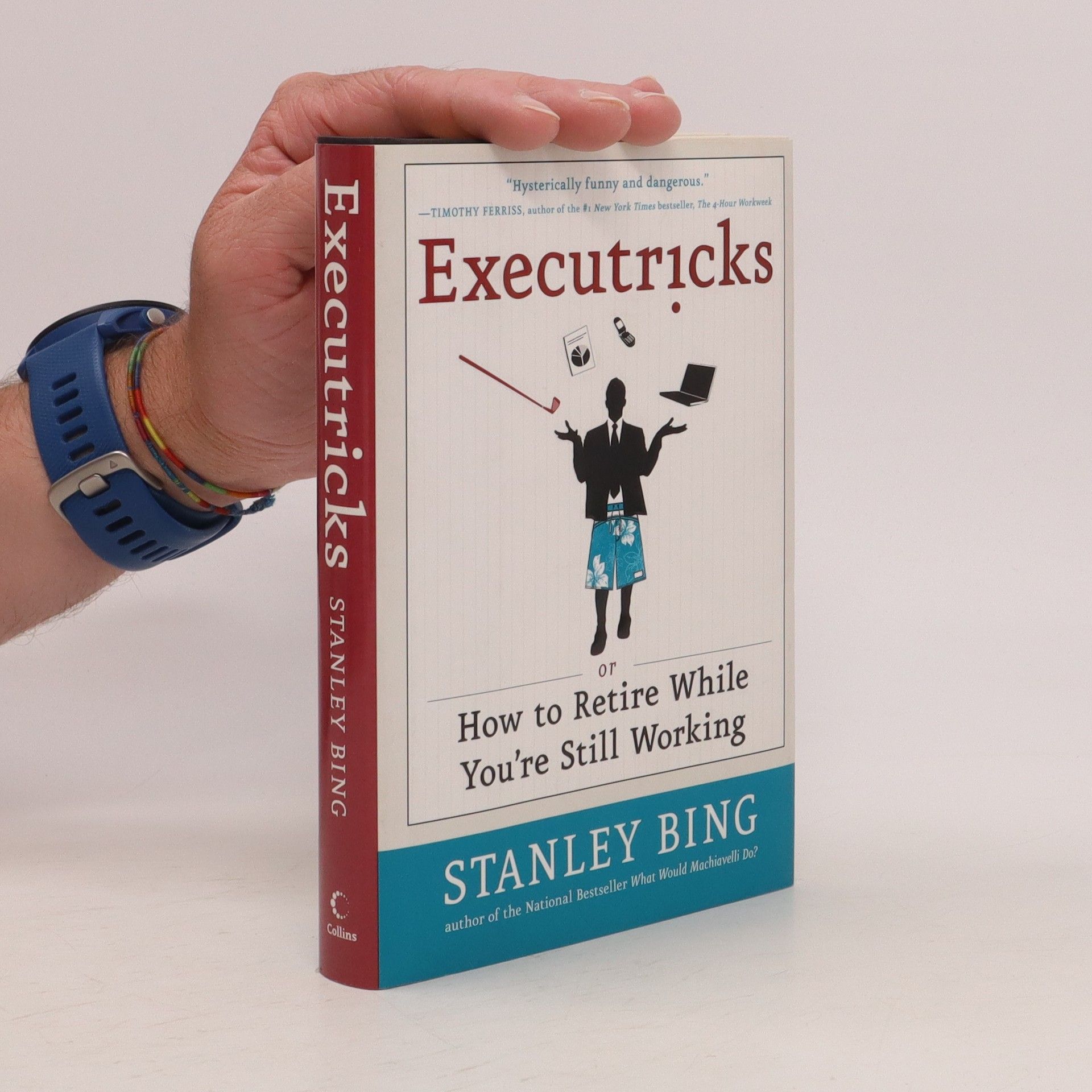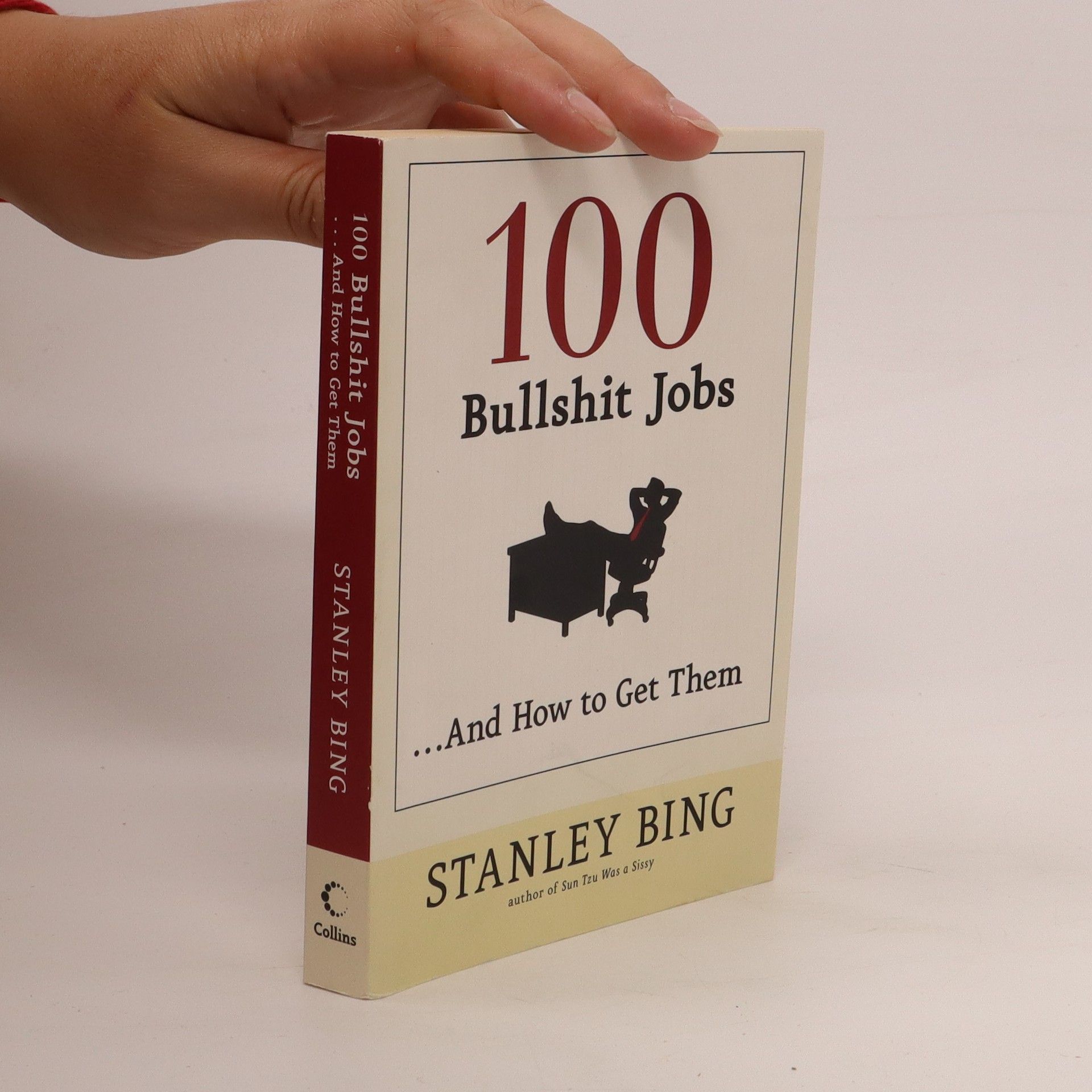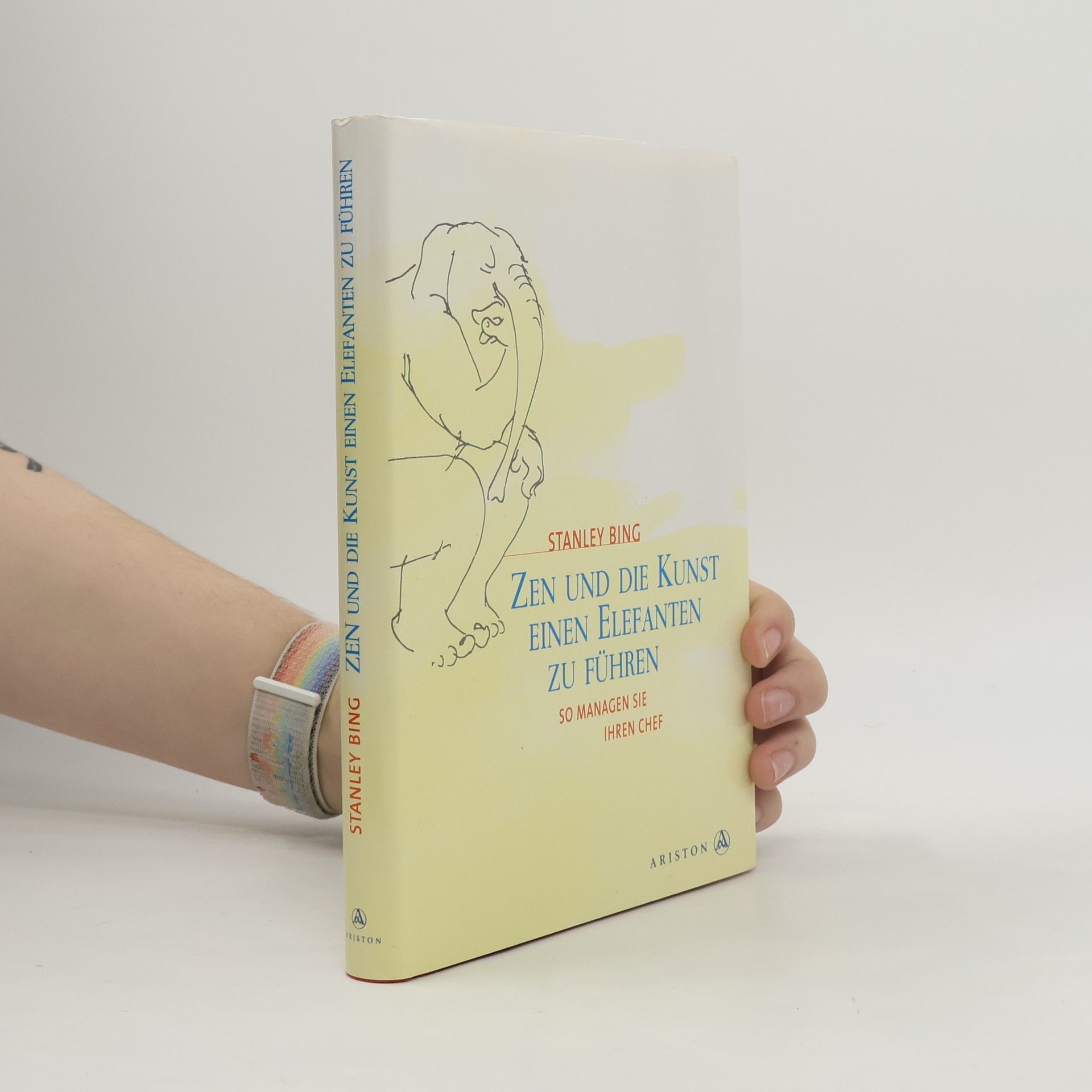Zen und die Kunst, einen Elefanten zu führen
- 199 Seiten
- 7 Lesestunden
Stanley Bing ist ein gefeierter Autor, dessen Werk meisterhaft die Schnittstelle zwischen scharfer, praktischer Geschäftsstrategie und bissiger Satire beleuchtet. Seine Schriften befassen sich mit den komplexen Dynamiken von Macht und Pathologie und spiegeln oft vorausschauend zeitgenössische gesellschaftliche Landschaften wider. Mit scharfem Blick seziert er die Gründe, warum zwielichtige Charaktere manchmal größere Erfolge erzielen als ihre tugendhafteren Gegenstücke. Bings unverwechselbare Stimme verbindet aufschlussreiche Analysen der Geschäftswelt mit einer trockenen, humorvollen Perspektive und bietet den Lesern eine einzigartige Linse, durch die sie sowohl das Geschäftliche als auch die menschliche Natur betrachten können.






What do being a feng shui advisor, marketing consultant, and vice president of the United States have in common? The inimitable Stanley Bing presents a tasteful pile of these and other bullshit jobs, and explains how to snag one for yourself. From bestselling author and business guru Stanley Bing comes an indispensable guide for the contemporary working person—specifically, a worker who is ambitious, greedy, and lazy. In his helpful, witty, straight-shooting style, Bing, who based his entire career and several bestselling books on his own very special brand of bullshit, guides the reader through a plethora of bullshit jobs that pay well and demand very little knowledge or effort. Walmart greeters, executive headhunters, aromatherapists: The people lucky enough to have secured this type of bullshit employment are everywhere, in virtually every field—from ayurvedic healing to zoo management. Bing’s handy reference explains the myriad benefits of such bullshit ways to earn a living, and details steps readers should take to land a bullshit job of their own.
How did the rich and powerful individuals who move the earth get where they are today? Are they smarter? Faster? Better looking? Certainly not. Some are even short and ugly. What, then, is their edge? The answer is simple: they're meaner. That's all. And if you want to get where they're going, you'll be meaner, too. The good news is that once you get started, it's easy. Walking in the steps of the Florentine master, Stanley Bing will show you how to be all the Machiavelli you can be. How to beat people who are smarter than you are. How to make other people cringe and whimper when you enter a room. How to get what you want when you want it whether you deserve it or not. Without fear. Without emotion. Without finger-wagging morality. One scalp at a time. They do it. You can too. What Would Machiavelli Do? is more than a road map for people who want to get to the top and stay there. It's a way of life you can use at home as well as at the office. A way of seeing other people from 50,000 feet--as teeny-tiny ants you can squish. A simple, detailed plan for those with the courage to leave kindness and decency behind, to seize the future by the throat and make it cough upmoney, power and superior office space. Some books are not for everybody. This one is. So start reading. Or get out of here. You're beginning to get on our nerves.
Conquer Your Enemies, Promote Your Friends, and Wage the Real Art of War
The book explores the parallels between ancient warfare strategies and modern workplace dynamics, emphasizing the competitive and often ruthless nature of today’s job market. Drawing on the teachings of Sun Tzu, the text highlights how his philosophies on strategy and leadership can be applied to navigate contemporary corporate challenges. By examining the historical context of conflict and management, it offers insights into achieving success in a cutthroat environment where cooperation is scarce.
V posledních několika letech začala vzkvétat vědecká disciplína "studií podfuku". Na toto téma a vzrůstající důležitost této problematiky v široké škále profesí vyšlo už mnoho kritických prací. Nyní na toto pole vstupuje autor bestsellerů a celoživotní provozovatel řemesla tohoto druhu Stanley Bing s vyčerpávajícím pohledem na mnoho atraktivních zaměstnání, která jsou dnes k dispozici těm, kteří to se svými podfuky myslí vážně a jsou připraveni zasvětit jim svůj pracovní život. Toto zábavné, užitečné, snesitelně filozofické a průkopnické dílko si bere pod drobnohled 100 podfukářských zaměstnání - peníze, které s sebou přináší, skutečné úkoly a činnosti (pokud je jich vůbec zapotřebí) a slavné a úspěšné příklady jednotlivých pracovních míst pro inspiraci nováčkům. Hlavním Bingovým přínosem je to, že nabízí, co ostatní zatím nenabídli - jasnou, výstižnou strategii, která pomůže uchazečům o zaměstnání na všech úrovních dosáhnout na onen mosazný kruh s plným vědomím toho, že možná vězí v nozdrách býka.